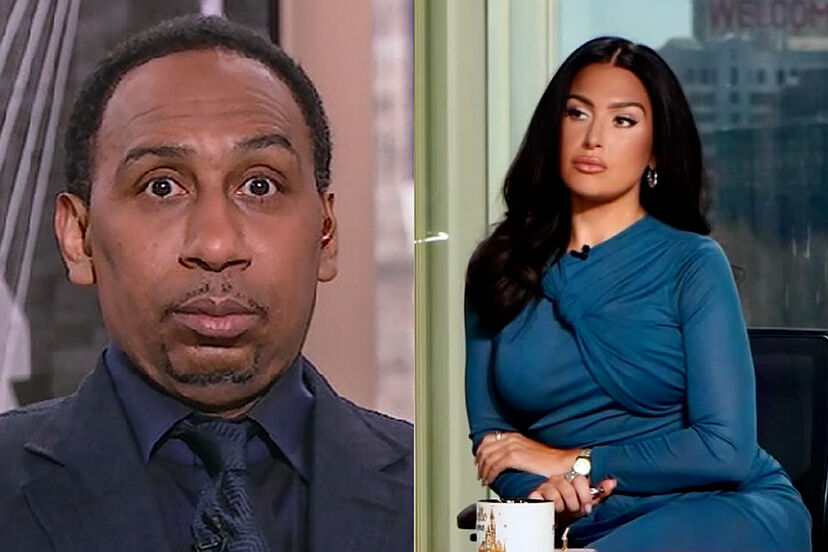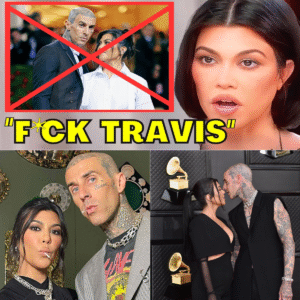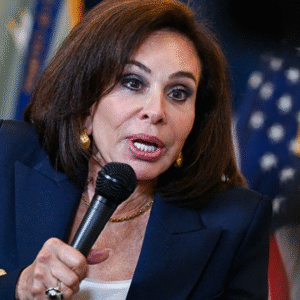Molly Qerim’s Abrupt Exit from ESPN: A Web of Betrayal, Power Plays, and Unanswered Questions
By Elena Vasquez, Media Correspondent
BRISTOL, Conn. — Molly Qerim’s sudden departure from ESPN’s First Take in October 2025 sent shockwaves through the sports media world, leaving fans, insiders, and even seasoned network veterans scrambling for answers. The polished farewell post on Instagram, thanking her “brilliant, passionate colleagues” and loyal viewers, did little to quell the storm of speculation. What seemed like a routine career move has spiraled into a saga of alleged betrayal, power struggles, and a rumored “blackmail dossier” that could unravel ESPN’s carefully curated image. As whispers of secret meetings, leaked memos, and personal vendettas grow louder, one question looms: Was Qerim’s exit a personal choice, or was she pushed out in a calculated corporate purge?

For over a decade, Qerim was the steady hand guiding First Take through its fiery debates, balancing Stephen A. Smith’s larger-than-life persona with sharp wit and poise. Together, they crafted a dynamic that made the show a morning staple, blending brains, charisma, and just enough drama to keep viewers hooked. But on a Monday in October, Qerim’s chair was empty, her resignation announced with little warning. ESPN’s attempt to frame it as an amicable split—a “new chapter” for Qerim—rang hollow. Insiders and fans alike sensed something darker brewing behind the network’s glossy facade.
The rumor mill ignited almost instantly, fueled by cryptic social media posts, resurfaced clips, and explosive allegations from an unexpected source: a woman claiming to be Stephen A. Smith’s ex-girlfriend. Her accusations painted Qerim as the architect of a campaign to undermine Smith, allegedly leaking contract details, spreading rumors to his rivals, and planting stories that could have derailed his career. “Molly wanted Stephen’s money but not his talent,” she reportedly sneered, suggesting Qerim envied Smith’s dominance and sought to claim a bigger piece of the spotlight. The claims, splashed across social media, left fans stunned and divided, with some dismissing them as gossip and others seeing them as the key to Qerim’s exit.
On air, tensions between Qerim and Smith had been simmering for months. Viewers noticed a shift in their once-playful banter, replaced by strained silences, eye rolls, and barbed exchanges that felt too personal for primetime. In one resurfaced clip, Smith joked about Qerim’s eating habits during a break, a comment that seemed harmless but struck fans as subtly disrespectful upon rewatch. Qerim’s quip about needing Smith’s permission for a bathroom break, met with his half-amused, half-icy stare, fueled speculation of deeper resentment. “It wasn’t chemistry anymore—it was a grudge match,” one fan tweeted, as clips went viral, dissected like evidence in a courtroom.
Behind closed doors, the situation was reportedly even uglier. Insiders describe a “full-blown crisis” at ESPN’s Connecticut headquarters, with tensions so high that security intervened to defuse a heated confrontation. Sources claim Qerim accused colleagues of sabotaging her, while Smith allegedly called her out for crossing unforgivable lines. Producers scrambled to contain the fallout, deleting messages and silencing leaks, but the damage was done. “It was a scorched-earth moment,” a former producer said. “Trust was gone, and everyone knew it.”

Money and power, as always, were at the heart of the storm. Smith’s reported $20 million salary dwarfs Qerim’s estimated $2.5-$3 million, a disparity that insiders say bred resentment. As Smith’s influence grew—his empire spanning TV, podcasts, and endorsements—Qerim reportedly pushed for a bigger role and paycheck, sparking a silent war over who truly drove First Take’s success. “When one person’s star outshines the rest, egos bruise,” an ESPN veteran noted. “Molly wasn’t content playing second fiddle.”
Then came the bombshell: rumors of Qerim’s “blackmail dossier,” a digital arsenal allegedly containing private emails, recorded conversations, and dirt on ESPN’s biggest names. Insiders claim it held details of bitter contract disputes and unfiltered exchanges between top talent and executives, enough to “blow up HR” if leaked. One source, a former assistant producer, alleged glimpsing emails about Qerim’s grievances with colleagues, while another swore audio clips existed of tense confrontations. ESPN’s legal team reportedly locked down systems like Fort Knox, fearing a single leak could crater careers and reputations.
The timing of Malika Andrews’ high-profile promotion, announced days after Qerim’s exit, poured fuel on the fire. Fans speculated that ESPN had orchestrated a seamless swap, elevating Andrews—a rising star with a freshly inked deal—while quietly ushering Qerim out. “Too perfect to be a coincidence,” one commenter wrote, as others labeled it a calculated move to replace one strong female host with another, burying the chaos in the process. Andrews’ rapid ascent, while celebrated, raised questions about whether she was positioned to inherit Qerim’s throne before the dust even settled.
Adding to the intrigue were whispers of Qerim’s health struggles, a detail that muddied the narrative. Was she a mastermind orchestrating a takedown while battling personal issues, or was her health used to paint her as fragile, deflecting from ESPN’s role in her departure? The network’s PR machine worked overtime, with content president Burke Magnus praising Qerim’s contributions since 2006 and insisting her exit was a mutual decision. But the polished statements only deepened skepticism. “When execs say there’s no drama, that’s when you know the real story’s radioactive,” an insider quipped.
Stephen A. Smith, typically unfiltered, has been uncharacteristically guarded, offering cryptic remarks that fan the flames. “I’m sad about it, to put it mildly,” he said on air, before adding, “The details aren’t anybody’s business.” His claim of not knowing “all the details” while hinting at deeper knowledge—“I have my ideas, but I’m not sharing”—left fans dissecting every word. His silence screams louder than any outburst, suggesting he’s protecting himself, Qerim, or something bigger within ESPN’s glass tower.
As the scandal unfolds, ESPN faces a reckoning. The network, built on fiery debates and larger-than-life personalities, is now grappling with a culture of paranoia and power plays. Insiders describe a workplace where egos clash, alliances shift, and contracts are weaponized. Qerim’s exit, whether a betrayal or a forced ousting, has exposed cracks in ESPN’s empire. Fans, once glued to First Take for sports, now hunt for clues in old clips, waiting for the next leak to blow the lid off.

If Qerim’s rumored dossier exists, its release could be catastrophic—careers ruined, reputations torched, and ESPN’s dominance shaken. For now, the network clings to its narrative of a “friendly parting,” but the truth feels closer to a corporate chess game where Qerim was outmaneuvered. As Malika Andrews steps into the spotlight and Smith navigates the fallout, one thing is clear: Molly Qerim’s departure isn’t just a goodbye—it’s a warning that even ESPN’s brightest stars aren’t safe from the chaos behind the curtain.





